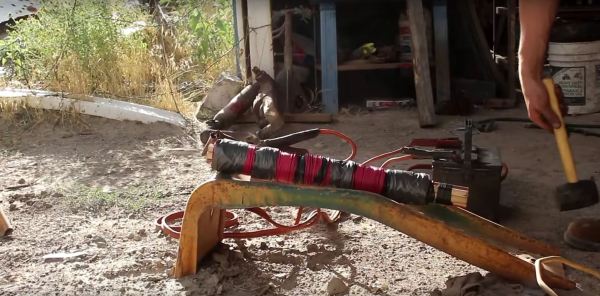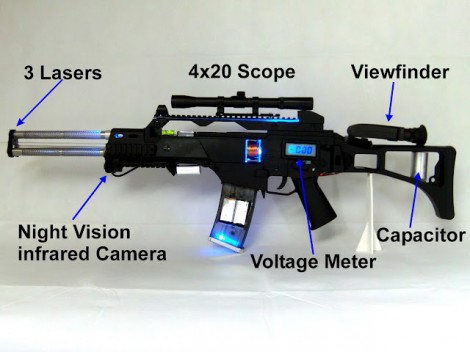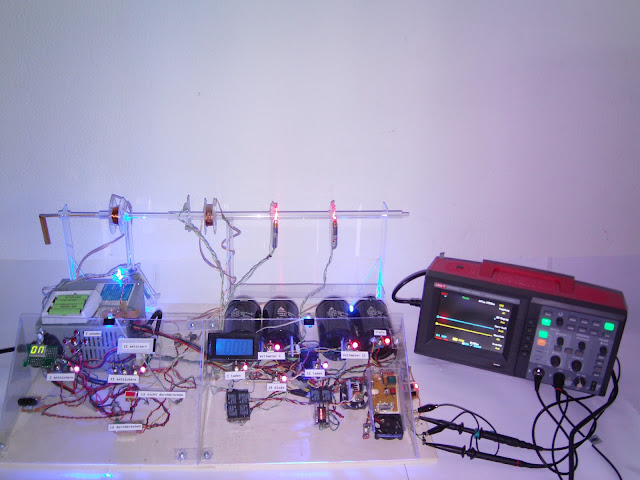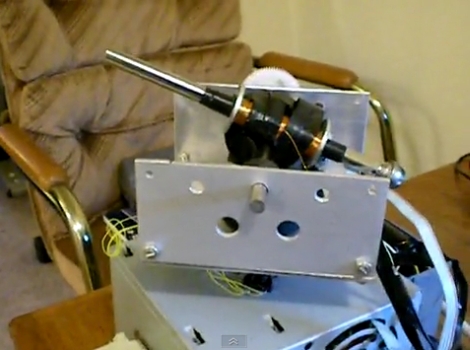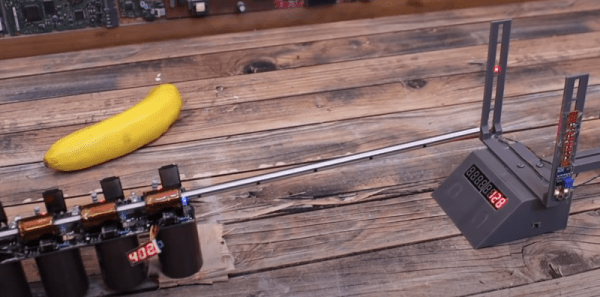Coilguns used to be the weapons of science fiction. Nowadays, whenever we see someone build one in their workspace it always serves as an inspiring reminder that the future is now. YouTuber [Cody’sLab] has done just that, assembling a rudimentary — but beefy — coilgun in his workshop.
The one in the video is based off an old design that used a 12V battery and without any fancy electronics. This new model has five coil stages along its two-foot length. Four wooden dowels and two copper tubes are arranged in a hexagonal shape to form the barrel and accelerator rails. The coils are each 100 feet of 14-gauge thin coated copper wire, all connected to a common ground. Still lacking any complex electronics, this version eventually gets its projectile launched a good few dozen feet. The ‘bullet’ is a piece of steel with some brass to prevent it spinning in the barrel, while a hole has been drilled in it to accommodate a spring which keeps the two graphite brushes contacting the copper tubes.
The first test proved to be a little underwhelming, and [Cody] had to try something drastic — so he hooked it up to an arc welder to fire the projectile using 22V and 200A.
Continue reading “Five-Stage Coilgun Powered By An Arc Welder!”

